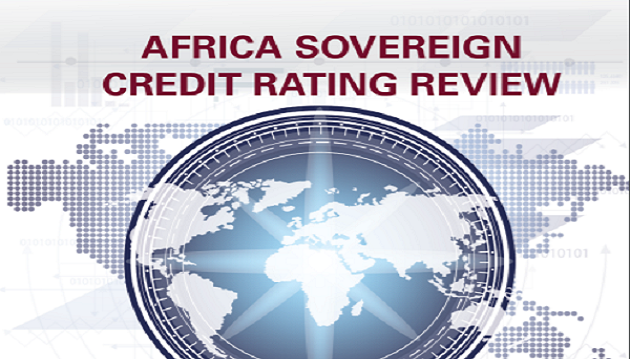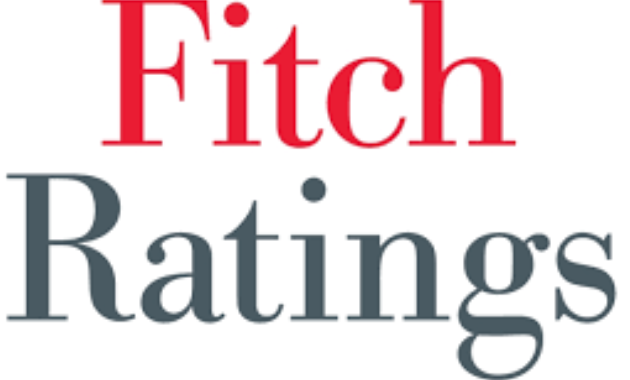E-Financial
UBA Gross Earnings Rises by 143 Percent YoY, Profit Hits N757.7Bn

In another unprecedented performance, Africa’s Global Bank, United Bank for Africa (UBA) Plc, has released its audited financial results for the full year ended December 31, 2023, showing exceptional and impressive performance across all its major indicators.

Oliver Alawuba, GMD, UBA Group
The 2023 financials, filed by the Bank at Nigerian Exchange Limited (NGx) on Monday, showed an impressive leap in gross earnings, as it grew from N853.2 billion recorded at the end of 2022 to close at N2.08tn; representing a strong 143 percent growth.
The banks’ total assets also rose remarkably by 90.22 percent, doubling the N10 trillion mark, to close at N20.65 trillion in December 2023; up from N10.86 trillion in 2022. This leap remains a very significant achievement and milestone in the history of the financial powerhouse.
Despite the highly challenging global economic and business environment, UBA recorded a laudable profit before tax, with an exponential growth of 277 percent, to close the year under review at N758billion, rising from N201 billion recorded at the end of the 2022 financial year; while profit after tax (PAT) grew by 257 percent from N170 billion in 2022, to N608 billion in the year under consideration.
Consequently, UBA Group Shareholders’ Funds rose from N922 billion as at December 2022 to close the 2023 financial year at N2.0tn, achieving an impressive growth of 120.2%, compared to prior year.
In the year under consideration, UBA Group cost-to-income ratio dropped from 59.2%, in 2022, to 37.2 per cent pointing at the Group’s improving efficiency.
In fulfilment of the promise made byTony Elumelu, group chairman, UBA, to shareholders at the last Annual General Meeting, the Bank proposed a final dividend of N2.30 kobo for every ordinary share of 50 kobo, for the financial year ended December 31, 2023. The final dividend is subject to the ratification of the shareholders during its upcoming annual general meeting (AGM).
Also worthy of note, UBA recorded a 61.3 percent growth in loans to customers, moving up to N5.5 trillion in 2023, whilst customer deposits improved by 90.31 percent to N14.9 trillion, compared to N7.8 trillion recorded in the corresponding period of 2022, reflecting increased customer confidence, enhanced customer experience, successes from the ongoing business transformation programme and the deepening of its retail banking franchise.
Commenting on the results,, Oliver Alawuba, group managing director/chief executive officer, said: “I am very pleased with the unprecedented results achieved by our Group in FY2023. The Group made a profit before tax of N758billion, from N201 billion in the prior year. The balance sheet also grew to N20.7trillion from N10.8trillion in the previous year.
He said, “The Group’s shareholder’s funds crossed N2trillion from N922bn in 2022, whilst total assets crossed the N20 trillion mark (90.2% YoY growth). The Group is well positioned for further business expansion in FY2024 having closed FY2023 with Capital Adequacy Ratio of 32.6%.”
He added that the bank’s diversified business model (Pan-African and International strategy) is justified by the contribution of its Ex-Nigeria business to the Group’s results and reinforces its resolve to expand our market share of customers, funding, digital and transaction banking businesses across Africa.
“Driven by our customer service and execution-led delivery model, we will continue to expand our market share and create value for our shareholders and meet the expectations of our various stakeholders,” the GMD stated.
Ugo Nwaghodoh, executive director, Finance & Risk Management, UBA, said the 2023 full year was a particularly eventful year, with galloping inflation and currency depreciation ravaging key markets, amidst pockets of regional conflicts and security challenges.
“I am delighted however at the strong growth in earnings and profitability recoded in the year. The Group conservatively set up significant impairment reserves against its overall risk assets portfolio considering the latent impact of the macroeconomic headwinds on our credit portfolio. Consequently, Cost of Risk grew to 3.09% from 0.63% in the prior year,” Nwaghodoh noted.
On the expectation for the 2024 financial year, he said, “The Group remains fervently committed to sustainable growth and maintaining its strong compliance and risk management practices culture even as we drive our business through the next phase of growth.”
United Bank for Africa Plc is a leading Pan-African financial institution, offering banking services to more than thirty-five (35) million customers, across 1,000 business offices and customer touch points in 20 African countries. With presence in New York, London, Paris and Dubai, UBA is connecting people and businesses across Africa through retail, commercial and corporate banking, innovative cross-border payments and remittances, trade finance and ancillary banking services.
E-Financial
African Union Launches Credit Rating Agency to Promote Regional Economic Integration

The African Union has taken a significant step towards promoting economic resilience in Africa with the launch of the African Credit Rating Agency (AfCRA).

The new agency aims to provide a fair, transparent, and unbiased credit rating system, addressing the biases of global rating firms that have reportedly cost Africa over $75 billion in investment opportunities.
According to Kenya’s President, William Ruto, who unveiled the agency at an AU event in Addis Ababa, Ethiopia on Friday, “Global credit rating agencies have not only dealt us a bad hand, they have also deliberately failed Africa.”
Ruto criticized the flawed models, outdated assumptions, and systemic bias used by global rating agencies, which paint an unfair picture of African economies and lead to distorted ratings, exaggerated risks, and unjustifiably high borrowing costs.
The launch of AfCRA is a response to the long-standing grievances of African countries regarding their treatment by international credit rating firms.
The agency aims to provide fair, transparent, and development-focused credit ratings that reflect the realities and potential of African economies.
Improving Africa’s rating by one notch could unlock $15.5 billion in additional funding for the continent, according to Ruto.
The idea of creating an African credit rating agency has been in the pipeline for years, with the AU officially announcing its plans to move forward with the project in September 2023.
The push for an African credit rating agency gained momentum in 2022 when Senegal’s former president Macky Sall called for a new system to “end the injustices” faced by African countries.
The African Credit Rating Agency is part of Africa’s continuous march towards economic resilience, which also includes the recent establishment of the African Energy Bank, headquartered in Nigeria.
The bank aims to provide support to unleash Africa’s energy potential and bring an end to energy poverty on the continent.
E-Financial
Nigeria Worst Hit by Crypto Currency Fraud

Fraud in the crypto industry in African continent has soared by 48 percent over the past year and Nigeria is worst hit according to report by CAJ News.

This is according to the Sumsub State of the Crypto Industry 2025 report, which indicates Nigeria recorded the highest rate of fraud across the sector, at 8,3 percent.
Thus, this percentage of verification attempts were flagged as fraudulent.
Uganda, Kenya and Tanzania all have fraud rates of 4,8 percent, with Cameroon (4,5 percent), Ethiopia (3,7 percent), Ghana (3,5 percent), Algeria (2,6 percent), Benin (2,6 percent) and Morocco (2,1 percent) recording significant rates.
The most popular fraud types are document forgery (affecting 31 percent of surveyed companies), phishing (20 percent) and money mulling (15 percent), followed by account takeover (14 percent) and forced verification (12percent).
Simsub, the cyber crime expert, believes this surge highlights the need for companies to adopt artificial intelligence (AI)-powered detection, biometrics and continuous monitoring to enhance security.
The report states that innovations like biometric checks, AI-backed automation and document-free verification have boosted crypto platform users’ on-boarding success rates to 93,39 percent and reduced verification time by 46 percent, overall improving customer on-boarding while reducing drop-off cases.
Hannes Bezuidenhout, Vice President of Business Development (Africa) at Sumsub, said Africa’s growing adoption of crypto provided its own challenges, but the company foresaw increasing demand and growing user expectations across the continent.
“So it’s crucial for VASPs operating in the region to implement secure verification systems and stay vigilant to fraud, while keeping an eye on evolving and new regulations concerning the crypto sector to avoid fines.”
VASP is an acronym for virtual asset service provider.
E-Financial
Banking Consolidation Less Likely as Nigerian Banks Meet Capital Requirements – Fitch

Fitch Ratings has said that Nigerian banks are making significant progress in raising core capital to meet new paid-in capital requirements. The rating agency noted that the banks are generally on track to meet the end-of-first quarter (Q1) 2026 deadline.

This is supporting a recovery in capitalisation from the impact of naira devaluation, providing fuel for business growth. It also reduces the likelihood of significant banking sector consolidation.
In March 2024, the Central Bank of Nigeria announced a significant increase in paid-in capital requirements (share capital plus share premium) for commercial, merchant and non-interest banks.
Banks have three ways to comply – through equity injections, M&A and downgrading their licence authorisation.
Fitch-rated banks have made notable progress towards compliance. Almost all have raised capital or formally launched the process to do so.
The two largest banks, Access Holdings and Zenith Bank, are the first to secure enough fresh capital to meet the N500 billion requirement for an international licence. First HoldCo, United Bank for Africa and Guaranty Trust Holding Company are taking a phased approach.
They have recently raised capital and have shareholder approval to begin raising more to meet the N500 billion requirement. First HoldCo’s and United Bank for Africa’s recent rights issues are awaiting final regulatory approval.
Fidelity Bank and FCMB Group have completed initial capital raisings but will need to raise more to maintain their international licences. As second-tier banks, they must raise significantly more capital relative to their balance sheets than larger banks.
They have extraordinary general meeting approval for this, although they could consider downgrading to a national licence as they each have just one foreign subsidiary.
Ecobank Nigeria Limited (ENG) and Jaiz Bank needed only small capital injections to meet their requirements and have already achieved compliance. We estimate that ENG is still in breach of its total capital adequacy ratio (CAR) requirement of 10 percent but it has further capital-raising plans to restore compliance. Stanbic IBTC Holdings has launched a rights issue to raise capital to maintain its national licence.
Strong investor appetite has ensured that the vast majority of capital raisings so far have been successful, and most first- and second-tier banks should be able to meet their new capital requirements through capital raisings alone. Therefore, we believe the likelihood of banking sector consolidation among first- and second-tier banks has decreased.
Union Bank of Nigeria (UBN), which is also in breach of its 10 percent CAR requirement, and third-tier banks have generally been slower to raise capital. Wema Bank has shareholder approval to raise enough capital to retain its national licence and plans to launch the process in April.
Coronation Merchant Bank recently received board approval. It is not clear whether UBN and unrated third-tier banks have received the necessary approvals. M&A activity and licence downgrades remain more likely among third-tier banks.
The capital raisings are contributing to a recovery in capitalisation from the impact of naira devaluation, which put pressure on capital ratios and increased US dollar credit concentration risks. Strengthened buffers over minimum CAR requirements will mitigate risks from a challenging operating environment, including regulatory intervention and further naira volatility, while providing room for business growth.
The capital raisings are unlikely to lead to banks with Long-Term Issuer Default Ratings (IDRs) of ‘B-’ being upgraded given the constraint of Nigeria’s ‘B-’/Positive Long-Term IDR.
However, they could contribute to Outlook revisions to Positive for some banks, and, providing CAR compliance is restored, to upgrades for UBN and ENG (both rated ‘CCC’). Capital raisings are more likely to affect National Long-Term Ratings, which measure the relative creditworthiness of Nigerian issuers.

 E-Business3 days ago
E-Business3 days agoSchmidt, Ex Google Chief Says AI Risky in Terrorist Hands

 News3 days ago
News3 days agoFG Order MDAs to Close Commercial Banks’ Accounts, Enforce TSA Policy

 News2 days ago
News2 days agoTikTok Returns on Apple, Google US App Stores as Trump Delays Ban

 General News2 days ago
General News2 days agoResearchers Develop Innovative Treatment for Malaria

 E-Financial3 days ago
E-Financial3 days agoNigeria Worst Hit by Crypto Currency Fraud

 Telecom2 days ago
Telecom2 days agoVisa Launches Report on Digital Payment Landscape in Nigeria, Shows Positive Outlook

 Telecom3 days ago
Telecom3 days agoSalesforce Collaborates with Tech Leaders to Launch AI Energy Score for Model Efficiency

 E-Financial2 days ago
E-Financial2 days agoAfrican Union Launches Credit Rating Agency to Promote Regional Economic Integration






















